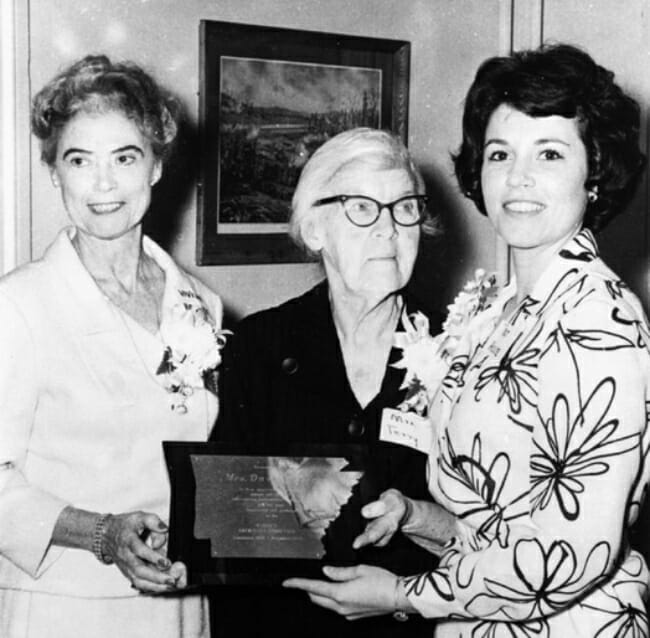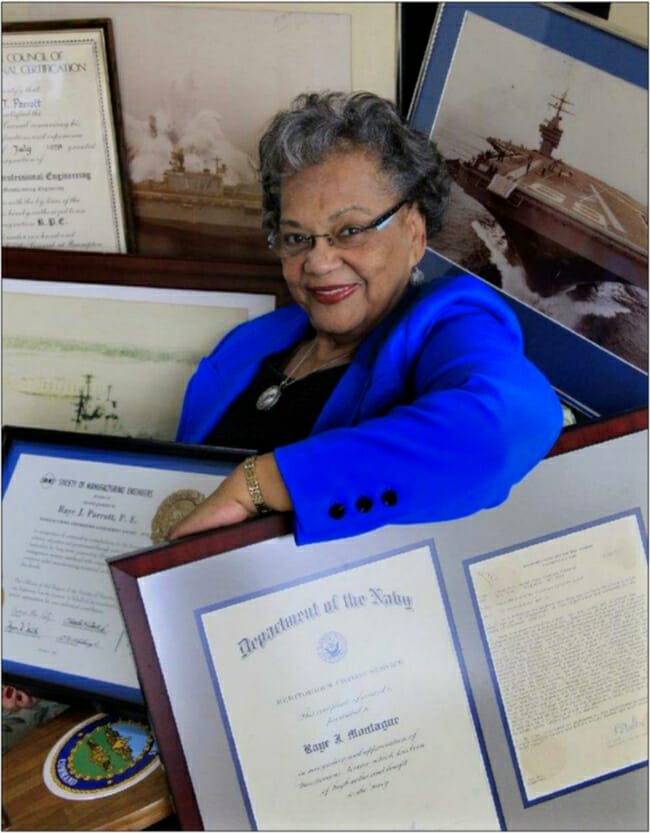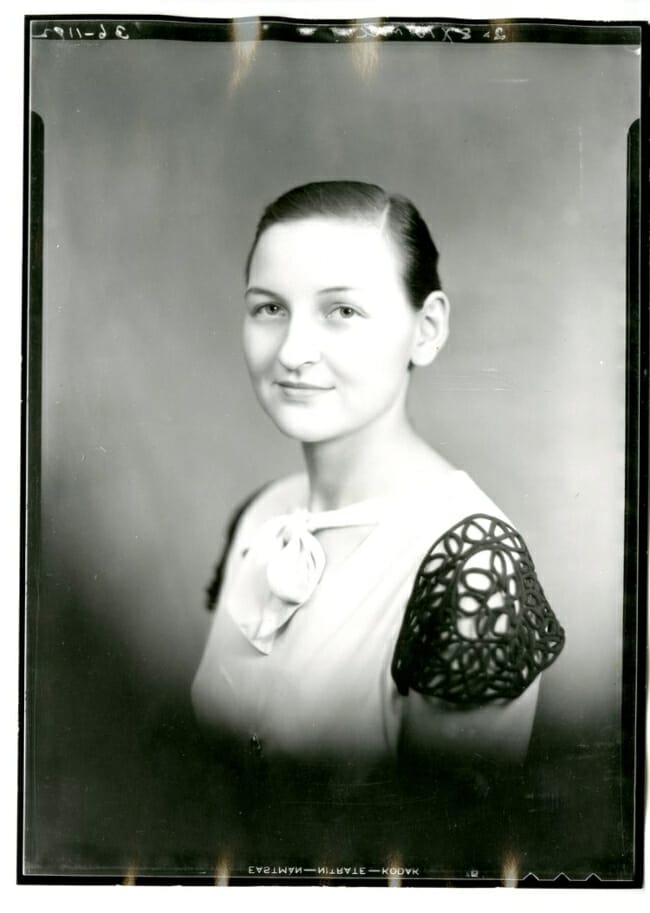

Uh oh...
It appears that you're using a severely outdated version of Safari on Windows. Many features won't work correctly, and functionality can't be guaranteed. Please try viewing this website in Edge, Mozilla, Chrome, or another modern browser. Sorry for any inconvenience this may have caused!
Read More about this safari issue.

Women have long impacted the state of Arkansas, but it wasn’t until 2015 that the Arkansas Women’s Hall of Fame formed to honor outstanding women across the state. Started as a partnership between the North Little Rock Chamber of Commerce and the Arkansas Business Publishing Group, the Hall seeks to honor women both living and deceased who have influenced the direction of their communities or the state. Some of the qualifications for inductees include an enduring contribution to her field, social, cultural, political or economic impact on her community or state, pursuing the elevation of women and girls within the state or living as an inspiration to others. The Arkansas Women’s Hall of Fame currently honors over 70 women or women’s organizations. Below are a few outstanding examples of the women who have impacted Arkansas.

Women’s Emergency Committee
In 1957, Arkansas Governor Orval Faubus famously opposed the desegregation of Arkansas’s public schools by sending in state troops to prevent the Little Rock Nine from attending Central High School. That summer, Faubus enacted a new law to close Little Rock high schools. The Women’s Emergency Committee formed as a direct response to the governor’s action. In September of 1958, 48 women met in the home of Adolphine Fletcher Terry. Their mission was to inform all Arkansans of the importance of public school and the harm created by closing public schools in Little Rock.
The group grew to include over 1,600 women and was involved in recruiting school board members in support of desegregation. They also opposed the firing of 44 teachers and administrators and galvanized the community into action to put a stop to the firings, which were initiated by segregationists on the school board. When high schools reopened in August of 1959, the WEC continued to educate themselves and others over the political process and how to support education. In 1963, they disbanded, but the influence the WEC had over its many members, their families and the community remained. The Women’s Emergency Committee was inducted into the Hall of Fame in 2015 as part of the inaugural class.

Raye Jean Jordan Montague
Raye Jordan was born in 1935 in Little Rock. She was interested in science and engineering in high school, but when she attended Arkansas Agricultural, Mechanical and Normal College (now the University of Arkansas at Pine Bluff), she wasn’t allowed to enter the engineering program because of segregation. Instead, she pursued a business degree. After graduating in 1956, she joined the Navy as a digital computer systems operator. She learned computer programming on her own time at night school while continuing her work in the Navy. Montague rose to the position of computer systems analyst and eventually program director for the Naval Sea Systems Command Integrated Design, Manufacturing, and Maintenance Program. She became division head for the Computer-Aided Design and Manufacturing Program.
In 1971, Montague created the first computer-generated ship design. She continued to break barriers as the first female Program Manager of Ships in the Navy. She won numerous awards and honors over her career, including the Navy’s Meritorious Civilian Service Award. Montague was featured on “Good Morning America,” has a picture book about her life, and co-authored her own story with her son. She was inducted into the Arkansas Women’s Hall of fame in 2018 before her death later that year.

Elsijane Trimble Roy
Elsijane Trimble was a woman of firsts – the first woman circuit judge, the first woman on the Arkansas Supreme Court and the first woman federal judge on the Eighth Circuit. She was born in Lonoke in 1916 and grew up admiring the work of her father and grandfather, who were both attorneys. Her father also became a federal judge. Trimble was an excellent athlete and became a high school basketball standout. She graduated as valedictorian of Lonoke High School in 1934 and attended the University of Arkansas. There she continued her athletic prowess by becoming the women’s singles and mixed doubles tennis champion. She also attended law school, the only woman in her graduating class.
Trimble married her classmate, James Morrison Roy, and started practicing law. For a while, she and her husband ran their own law firm in Blytheville. After a divorce, she clerked for Justice Frank Holt of the Arkansas Supreme Court. In 1966, she became the first woman judge in Arkansas after Governor Orval Faubus appointed her to the Sixth District Court. Roy would continue to break barriers in her career until she reached her federal district court judgeship, which she held for 21 years. She died in 2007 and was inducted into the Hall of Fame in 2017.

Dr. Margaret Louise Sirman Clark
As a 2021 inductee into the Arkansas Women’s Hall of Fame, Dr. Clark has used her many years in education to influence Arkansas and the world. She was born in Georgia and graduated from high school in New York City before coming to Arkansas to attend Arkansas AM&N (now the University of Arkansas – Pine Bluff). Clark focused on languages and after graduation taught French and Spanish at Merrill High School in Pine Bluff. She continued to deepen her knowledge of French through intermittent studies at Rutgers University, La Sorbonne and the Université de Besançon in France. Clark earned her Master’s degree from the University of Arkansas in 1968. She then joined the faculty at the University in 1969 as one of the first African-American professors.
She taught both French and education classes in her university career, which spanned nearly thirty years. Clark also got her doctorate in education while at the University of Arkansas. As a professor, she taught French classes and education classes, including foreign language methodology and multicultural education classes. She also developed and taught English as a Second Language (ESL) workshops and created a Master’s program in ESL. Clark also has been an active influencer in the community by serving on various boards, including the Washington County Historical Society and the Hispanic Women’s Organization. She is the recipient of numerous awards, one of them being the Martin Luther King, Jr. Lifetime Achievement award, which she received in 2003. Clark continues to be actively involved in her community.
Arkansas Women’s Hall of Fame
Nominations by the public for the Arkansas Women’s Hall of Fame are taken under consideration each year. Selections are made in March and the women and their families or their legacies are celebrated in an induction ceremony. This year the ceremony will be held on November 4, 2021. The Arkansas Women’s Hall of Fame maintains a multimedia exhibit in the Statehouse Convention Center in Little Rock. Find out more about each woman included in the Hall of Fame at arwomenshalloffame.com.
Photos are courtesy of the Arkansas Women’s Hall of Fame.
Join the Conversation
Leave a Comment
2 responses to “The Arkansas Women’s Hall of Fame”
 Leave a Reply
Leave a Reply
We do the work.
You check your email.
Sign up for our weekly e-news.
Get stories sent straight to your inbox!











 Leave a Reply
Leave a Reply
[…] Medallion in 1993. The National Women’s Hall of Fame inducted her in 2005, followed by the Arkansas Women’s Hall of Fame in 2015. Bumpers continued to stay active with Every Child by Two until her death on November 23, […]
[…] a lifetime achievement award in 2016 by the Alzheimer’s Association and was inducted into the Arkansas Women’s Hall of Fame in 2018. She continues to do research into the work she’s dedicated her life to in […]